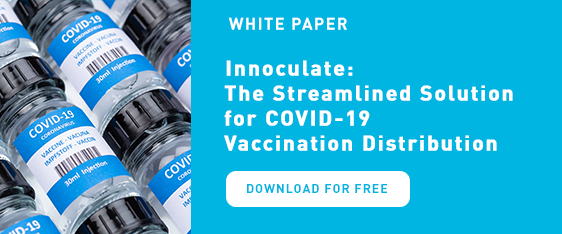
Five Problems You’ll Face with COVID-19 Vaccine Registrations and a Solution [Part 2]
By: Natalie Cheng
In Part 1, we talked about two problems that you’ll face with the COVID-19 vaccine registration process. Here are three more problems you’ll face and a solution:
3) Late Arrival of Vaccines
Another problem that many have encountered is the late arrival of vaccines. Our CEO experienced this when he volunteered at the City of Corpus Christi mega vaccination drive through event. The vaccine was supposed to arrive in the morning and ended up arriving 3-4 hours late. What if people showed up to the vaccine drive through already? Do you tell people to stay there or come back later? If people leave, you will have to get the information of who left to reschedule their appointment. If people decide to wait onsite and see when the vaccine comes in, imagine how much time is wasted waiting. Unfortunately, for this logistical issue, it will be hard to predict exactly when a vaccine will arrive on time, but as processes are refined and vaccine supply increased, this will be less of an issue.
4) Data Issues
In all steps of the process from registering to get vaccinated to reporting and follow-up, organizations need to deal with a bunch of data. Depending on the organization, each task could mean a separate system. For example, you could have a system for just registering people or another system just for reporting how many vaccines were administered to the state and federal vaccine reporting agencies. The problem with using multiple tools and systems is that they don’t always speak to each other. Data field formats can also differ based on the system. For example, one system could require you to put in your name, but there are different ways to input that information such as First Name, Last Name, or just Name. Some may even ask for your middle name or middle initial. Furthermore, if things aren’t synchronized, organizations face the possibility of losing or misplacing valuable information.
5) Reporting and Vaccine Allocation
These data issues can become major problems for cities and counties especially if reporting agencies use this information to allocate more vaccine doses. According to the Texas Tribune, “In the first six weeks of the vaccine rollout, the federal government allocated doses based largely on population, but will likely start using the vaccination rate — how fast doses are going into arms — as “at least a piece of their allocation process,” said Lara Anton, a spokesperson for the Texas Department of State Health Services, which runs the registry. We haven’t been using the data that’s in ImmTrac for allocation, but it sounds like we are going to need to place greater emphasis on that,” Anton said. “Because if they think we’re not using up all of their vaccines, they’re not going to send us additional vaccine. You know, they’ll send it somewhere else that’s using more.”
One System to Manage All Vaccine Distribution
Ideally, having a system that can manage the whole process (registration, scheduling, reporting, vaccine management tracking) would be the best solution. The system would need to be digitized and provide a central location for all information. This will help improve accuracy and efficiency in the vaccine management and distribution process. Looking for a solution to help your city, county, or organization? Reach out to us and we’ll be happy to show you a demo of our solution, Innoculate.


